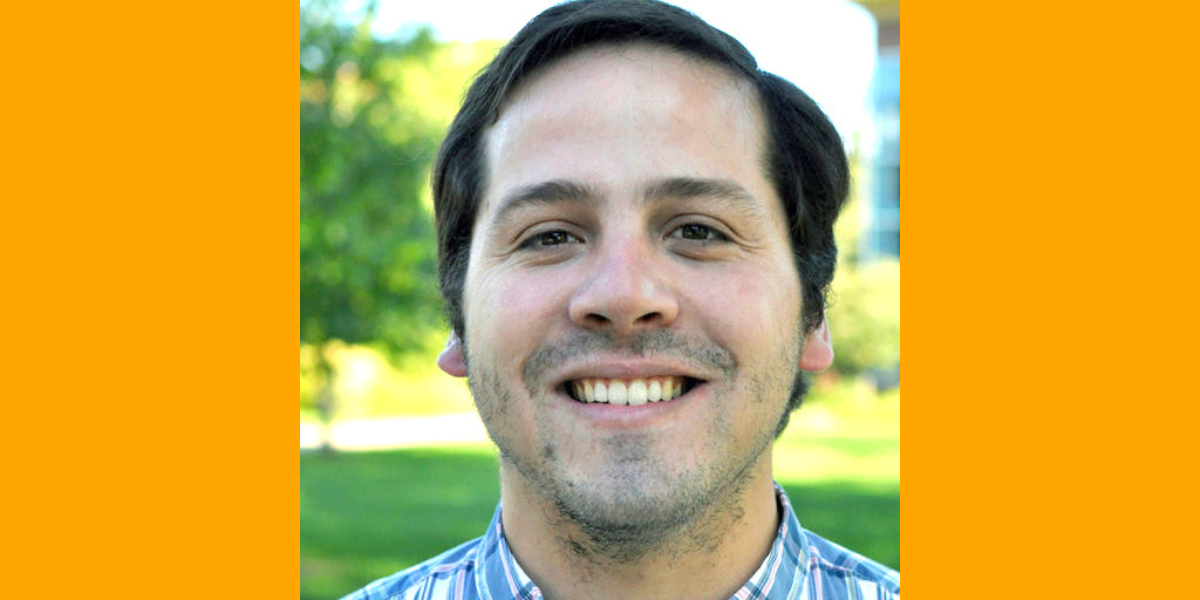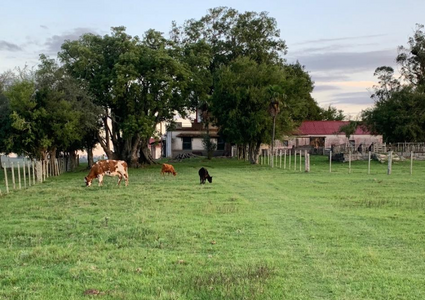Knowledge exchange
International graduate student and dairy researcher Felipe Peña-Mosca brings insight to CVM and industry partners

International graduate student and dairy researcher Felipe Peña-Mosca brings insight to CVM and industry partners
Dr. Felipe Peña-Mosca
Dr. Felipe Peña-Mosca grew up in Uruguay, a small country with only 3.5 million people but 12 million cows—700,000 of them are dairy cows.
In a rural part of Uruguay, Peña-Mosca’s family earned its living through beef cattle production. They still own and operate the farm. An inspiration to Peña-Mosca, his mother also works as a veterinarian. Naturally, Peña-Mosca’s current interest in veterinary medicine and dairy farming is traceable to these early experiences.
Instead of beef cattle, Peña-Mosca was drawn to the intensive practice of dairy production. He was curious about the strict sanitary regulations required to maintain dairy cows’ health.
“I found biology fascinating, but it was even more intriguing to see how it could be used to solve real-world problems,” he says.
Now, Peña-Mosca is an international graduate student and research assistant in the Veterinary Medicine Graduate Program at the University of Minnesota College of Veterinary Medicine (CVM). His research seeks to address a very real problem in the dairy industry: mastitis.

An inflammation caused by an infected mammary gland, mastitis is one of the most common diseases plaguing dairy cattle. It is an important problem in need of solutions because it affects animal well-being and leads to abnormal and decreased milk production, which also lowers producers’ profits.
Peña-Mosca saw this firsthand while working on dairy farms after graduating from veterinary school. During his four years as a dairy practitioner, he also pursued a master’s degree, giving him the opportunity to use research to find solutions to common problems that farmers were facing every day.
At CVM, Peña-Mosca’s research focuses on mastitis epidemiology and new ways to improve udder health in dairy cows. He is currently involved in projects that study bedding management and its impact on udder health as well as new approaches for mastitis diagnosis and prevention in conventional and organic dairy farms.
To build on the research skills he acquired during his master’s program, Peña-Mosca decided to pursue a PhD. He felt that additional specialized education and research experience was needed to expand his body of knowledge regarding the health of dairy cows.
Peña-Mosca secured a distinguished Fulbright Fellowship in Uruguay, and he began to explore universities in the U.S. with good doctoral programs. Applying to the University of Minnesota, Peña-Mosca cited its good reputation abroad and his encounters with former students from the program who had impressed him with sharp analytical skills and strong abilities to interpret epidemiological data.
A virtual meeting with a pair of faculty mentors well-matched to his interest, Drs. Sandra Godden and Luciano Caixeta, sealed the deal. Peña-Mosca completed his U of M application for graduate school and was admitted a few months later.
International students such as Peña-Mosca are key to the success and richness that define top graduate programs such as the College’s PhD and PhD/DVM programs. Collaboration with industry partners also is a key component of these programs.
Industry partnerships help deliver, fund, and translate the College’s research, education, and outreach. Peña-Mosca also sees them as an opportunity to help expand educational access to more highly qualified international students.
“I think that there are multiple ways in which the industry could support students,” he says. “For instance, research collaborations, internships, workshops, and funding scholarships or grants would be tremendously beneficial.”
In return, he thinks PhD student-researchers have much to offer industry partners. Well-trained, highly skilled graduate students offer industry sponsors cutting-edge research partnerships, specialized expertise, collaboration opportunities, access to advanced technology, and talent recruitment. Industry partners can benefit from these valuable resources in exchange for supporting the next generation of experts via student fellowships, paid internships, and other types of collaboration.
International educational exchanges also offer unique opportunities for the countries involved to expand their knowledge.
For instance, when asked what he thinks U.S. dairy farms can learn from Uruguay, Peña-Mosca points to Uruguay’s frequent use of an intensive grazing system, with cows grazing in pastures and supplemented with silage or hay when pasture growth is low. This represents a low-cost and sustainable alternative to commonly used confinement systems in the United States.
On the other hand, Peña-Mosca thinks Uruguayan dairy farms could benefit by implementing the electronic farm records used on many U.S. dairy farms. The records help to improve farm management, animal health, and production in general.
International educational programs create opportunities to exchange knowledge and research which, in turn, leads to more efficient management in dairy farms on a global scale.
With a strong interest in organic dairy practice, Peña-Mosca’s extensive knowledge and experience gained as a student and researcher could benefit organic dairy farmers in the U.S., Uruguay, and on a more global scale. As consumers of milk and dairy increasingly demand products from environmentally friendly, sustainable farms that practice rational use of antibiotics, his skills will be in high demand.
To meet customer needs, Peña-Mosca anticipates that more changes will be made in the next few years, including changes to many of the procedures used in organic dairies. For example, the dairy industry has embraced the goal of carbon neutrality by 2050.
“To achieve carbon neutrality in the dairy industry,” Peña-Mosca explains, “significant changes in farm operations—as well as investment in new technologies and practices—will be required.”
Challenges to meeting the industry goal of carbon neutrality include successfully reducing methane emissions, achieving appropriate and sustainable land use, and meeting the cost of implementing new technologies. Leading research institutions and educational partners such as CVM will need international education exchanges and strong industry partners locally and globally to meet the challenge.
As academic and industry partners look for innovative ways to solve today’s challenges in the dairy industry and beyond, international research and educational exchanges will help accelerate and expand discovery. These exchanges require a willingness from these partners to make the experience affordable. It’s an investment that could reap immediate and long-lasting benefits and give students like Peña-Mosca the opportunity to make an impact beyond laboratory walls.
Philanthropy is a powerful force in sustaining research efforts within the College of Veterinary Medicine. Our researchers are making ground-breaking discoveries that improve the health of animals, people, and the environment. Please contact Senior Development Officer Mindy Means at mkmeans@umn.edu or 208-310-3562 if you are interested in supporting this or other food-animal research.